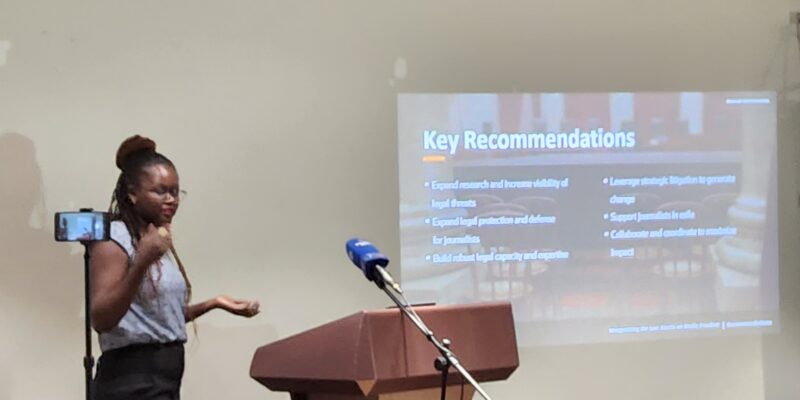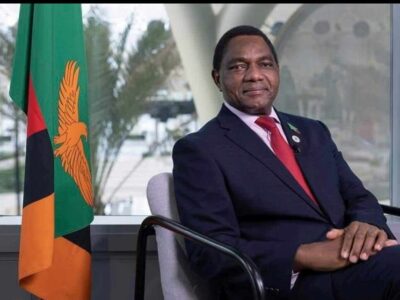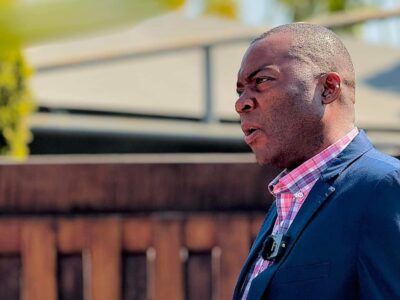Abuse of defamation laws is a leading legal threat to Journalists in African countries like Zambia, a new report by Thompson Reuters Foundation (TRF) has revealed.
Based on the research and consensus of experts and journalists surveyed, the report established that defamation remained one of the most serious threats for journalists.
Thompson Reuters Foundation, Senior Legal Officer, Gakii Mbae, presented the report titled: “Weaponising the law, Attacks on Media Freedom” in Lusaka on Wednesday.
Under the report, Mbae said it was established that defamation laws, both criminal and civil, continued to be used all over the world to prevent open public debate and shield powerful individuals from legitimate criticism.
She stated that online expressions had become a new target for criminal defamation, aligning with a growing trend to criminalize speech on the internet.
The report observed that there had also been a rise in civil defamation, which had the potential for excessive damages.
Mbae said this, in turn, encouraged self-censorship or the automatic publication of an apology to mitigate the risk of a possible lawsuit.
“This troubling development dovetails with the reversal of a more positive trend: the decriminalization of defamation laws, which many countries moved towards during the 2000s and early 2010s,” she highlighted.
The report, she said, showed that a number of countries had reintroduced criminal defamation offenses, expanded or increased penalties under existing laws, or boosted the enforcement of long dormant laws, in an effort to target journalists.
She added that the report revealed defamation as the preferred tool for those deploying Strategic Litigation Against Public Participation (SLAPPs), as these charges are increasingly used simply to intimidate and exert undue pressure on the media.
“This report confirms the rise of SLAPPs against journalists globally, in democracies and non-democracies alike,” Mbae said.
She stated that it also illustrated the increasing costs of this abusive practice, with businesses or individuals filing lawsuits for multi-million-dollar damages in an attempt to bankrupt journalists and media outlets.
Mbae noted that states were racing to criminalize criticism and that governments experiencing social unrest around the world were strengthening speech-related crimes, amid growing efforts to shield those in power from criticism.
“In the last five years, at least 43 states have enacted or amended laws to expand and increase penalties for defamation, anti-terrorist or extremist activity, national security, false news, public disorder and cybercrimes, laws that are frequently misused to prosecute journalists,” she said.
Mbae noted that the increasing regulation of the online space had also offered further opportunities to muffle public interest reporting and monopolize media content.
WARNING! All rights reserved. This material, and other digital content on this website, may not be reproduced, published, broadcast, rewritten or redistributed in whole or in part without prior express permission from ZAMBIA MONITOR.












Comments